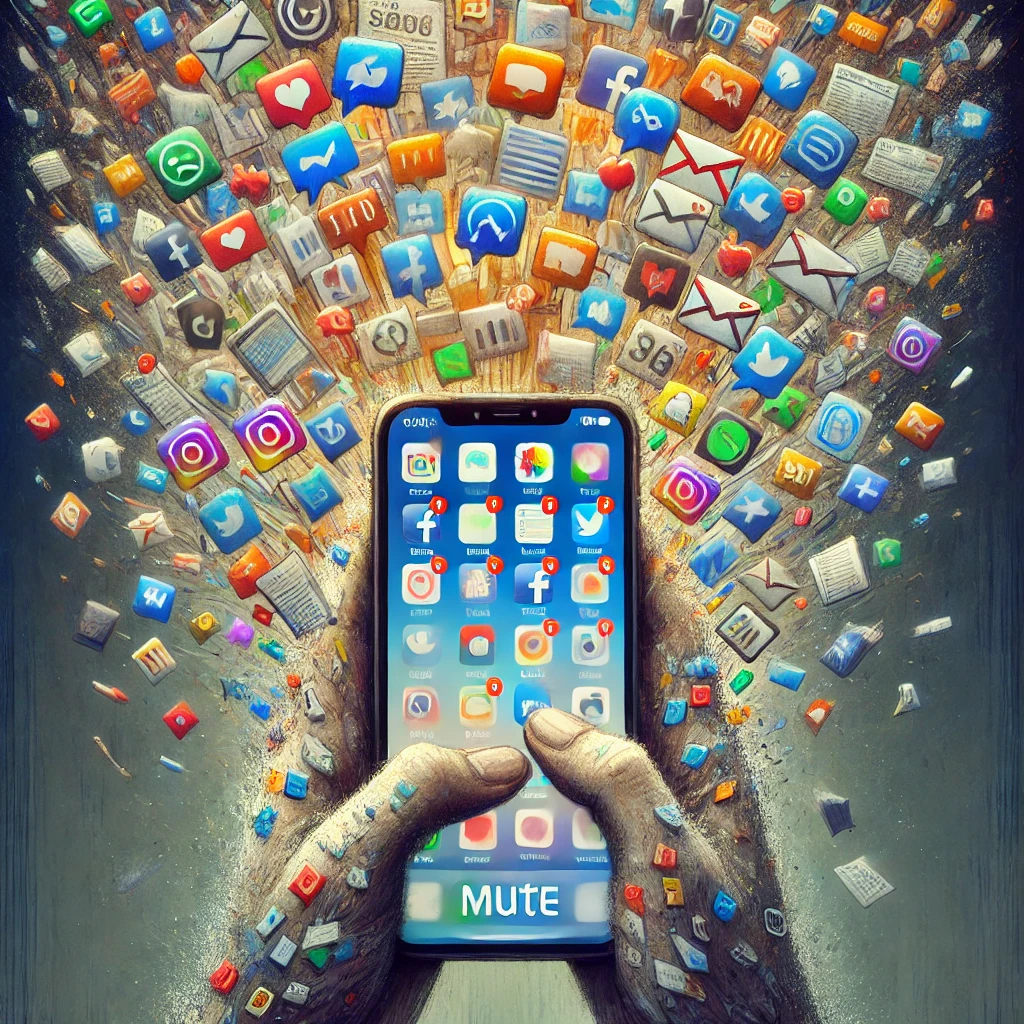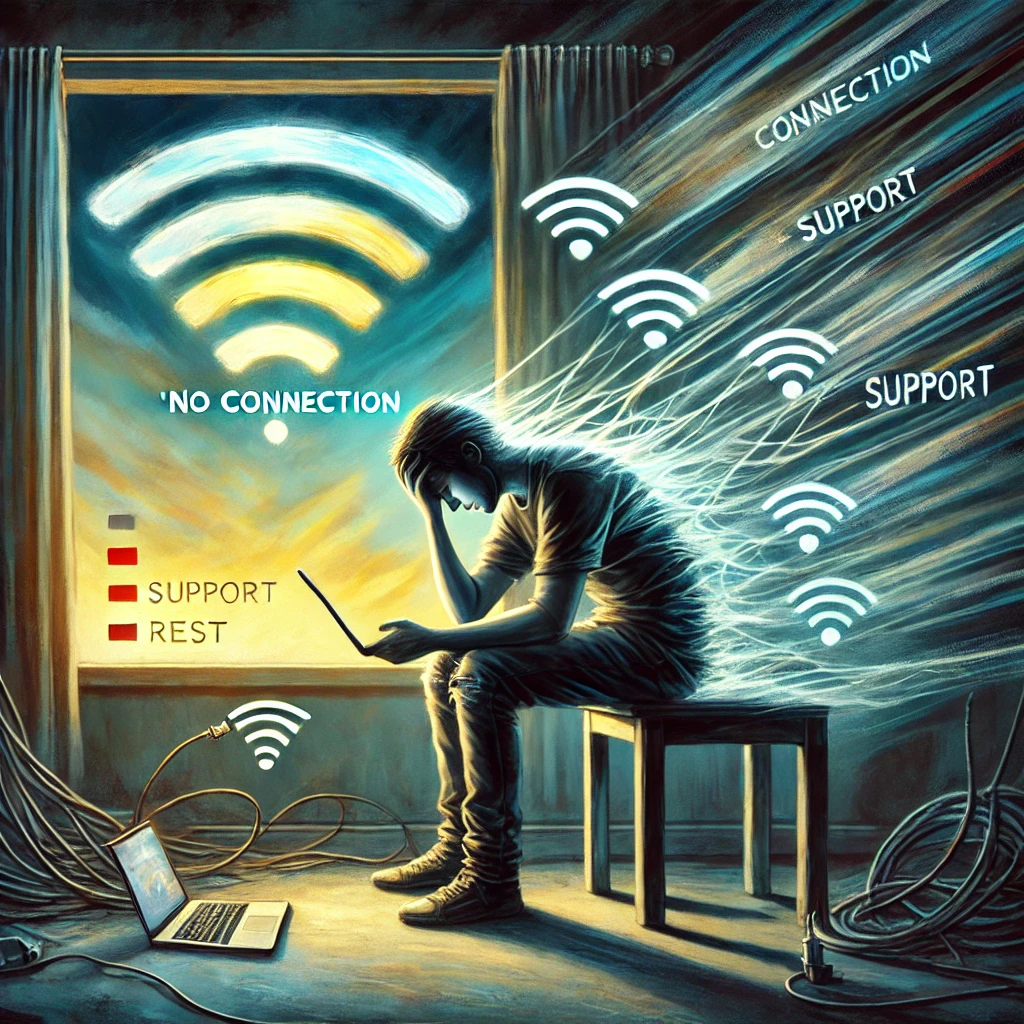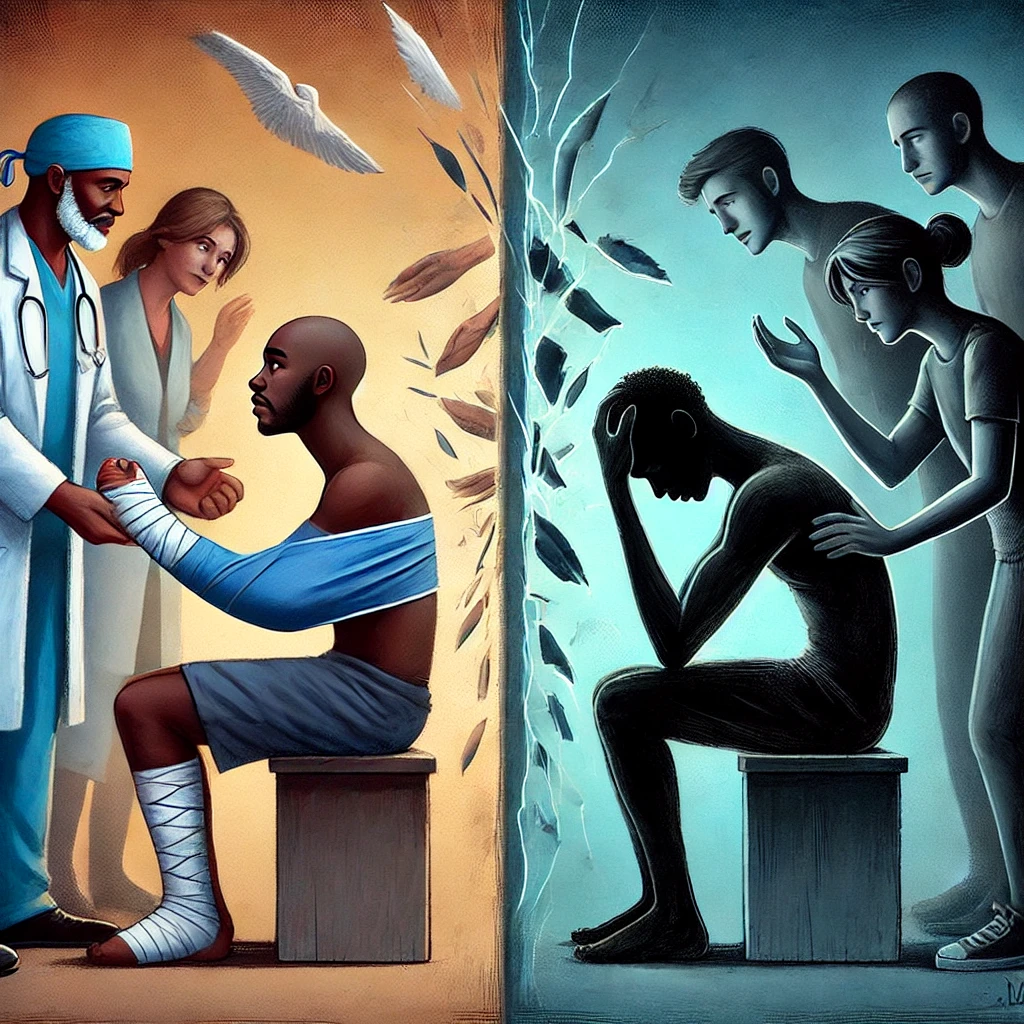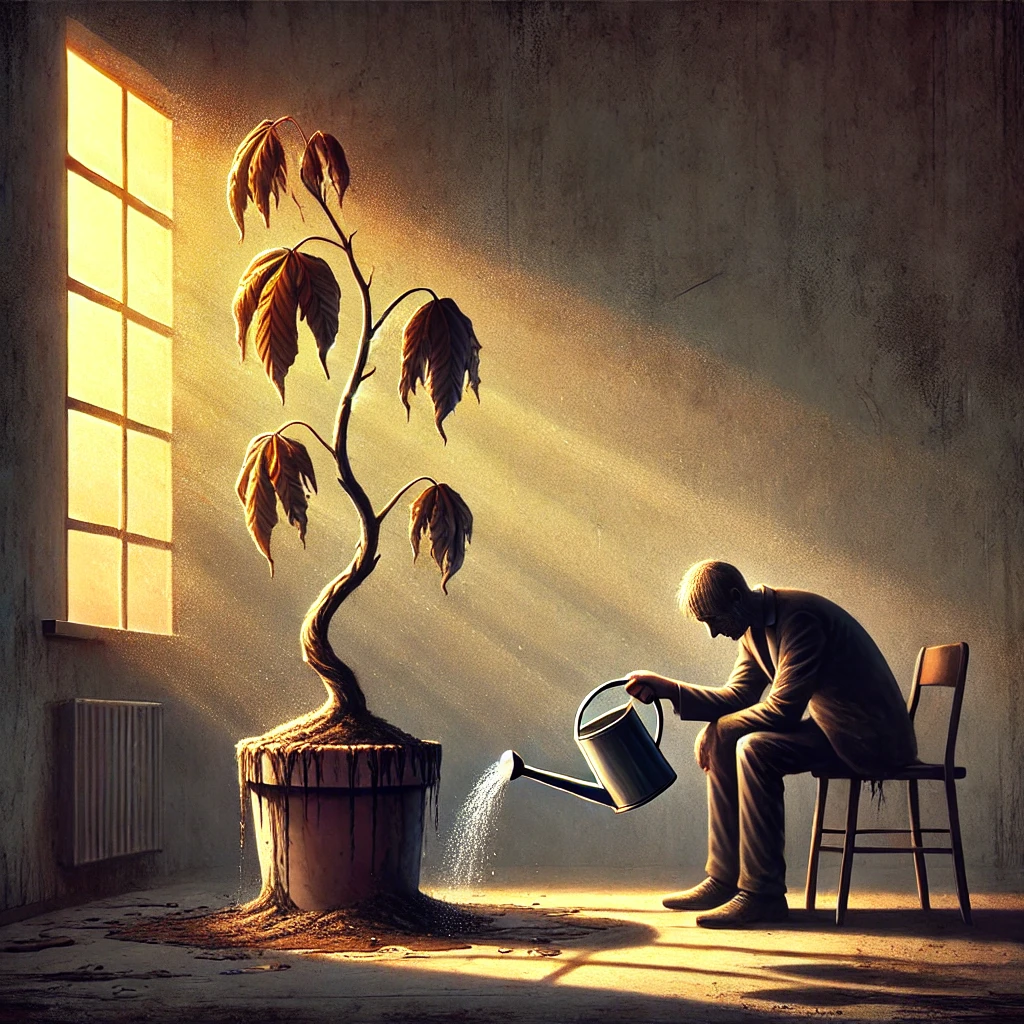10 Powerful parables that prove it’s okay to ask for help: understanding mental health through everYday stories.
The Overloaded Phone
Imagine your phone has dozens of apps running in the background—GPS, music, social media, emails, games—all draining the battery. At first, it seems fine. But over time, the phone slows down, lags, and eventually shuts off, even though you didn’t think you were doing that much.
Your mind is like that phone. Stress, unresolved emotions, anxiety, trauma—they’re the background apps draining your mental energy. You might be able to function for a while, but if you don’t pause, reset, or recharge, burnout is inevitable.
Lesson: Mental health isn’t about eliminating stress entirely; it’s about managing what’s running in the background. Therapy helps you “close” the apps you don’t need and recharge your battery.The Leaky Roof
Picture a small leak in the roof of your house. At first, it’s just a tiny drip. No big deal, right? But over time, that drip wears down the ceiling, causing mold, water damage, and even structural issues. By the time it’s noticeable, the repairs are expensive and overwhelming.
Mental health issues often start small—trouble sleeping, feeling more irritable than usual, or having low motivation. But if left unaddressed, they can grow into deeper issues like depression, anxiety disorders, or burnout.
Lesson: It’s easier to patch a small leak than to rebuild an entire roof. Don’t wait until things feel unmanageable—early intervention can save you from long-term struggles.The Wi-Fi Analogy
You’re trying to stream your favorite show, but it keeps buffering. You get frustrated, blaming the app or the device. Eventually, you realize the real issue is the Wi-Fi connection—it’s weak.
In life, when we feel disconnected, overwhelmed, or “off,” we often blame external things: work, relationships, or even ourselves. But sometimes, the issue isn’t the surface-level problem; it’s the deeper connection to our mental well-being.
Lesson: Mental health care is like strengthening your Wi-Fi signal—it improves everything else connected to it. Therapy helps you reconnect to yourself so you can function better in all areas of life.The Dirty Windshield
Imagine driving a car with a dirty windshield. The grime builds up slowly—you don’t even notice at first. But over time, your vision becomes blurry. You squint, strain, and feel stressed trying to see the road.
Eventually, someone asks, “Why don’t you just clean it?”
That’s what mental health issues can feel like. The “grime” is unresolved stress, trauma, or anxiety. It clouds your thinking and emotional clarity. You might not even realize how much it’s affecting you until you finally “clean the windshield” through therapy, self-reflection, or support—and suddenly, everything looks clearer.
Lesson: Just because you’ve been “driving” with a dirty windshield doesn’t mean it has to stay that way. Seeking help isn’t admitting failure; it’s choosing to see life more clearly.The Gym Membership Parable
Think about why people get gym memberships. It’s not because they’re weak—it’s because they want to stay strong, healthy, and resilient….or lose weight (let go of baggage and deadweight).
Mental health works the same way. Therapy isn’t just for people in crisis. It’s like going to the gym for your mind—a space to strengthen emotional muscles, build resilience, and process life’s challenges.
Lesson: You don’t have to “wait” until you’re in crisis to seek help. Just like physical fitness, mental health maintenance is proactive, not reactive.The Boiling Frog Syndrome
There’s a parable about a frog placed in a pot of cool water. If the water is heated gradually, the frog doesn’t notice the rising temperature until it’s too late. But if the frog were dropped into boiling water, it would immediately jump out.
Mental health struggles often creep up slowly, like the water warming in the pot. You might think, “It’s not that bad,” or, “I can handle it.” But over time, stress, anxiety, or depression can reach a boiling point without you realizing how much it’s affected you.
Lesson: Don’t wait until you’re “boiling” to seek help. Pay attention to the slow, subtle changes in your mental health and act early.The Backpack of Invisible Stones
Whatever it is, the way you tell your story online can Imagine a student walking to school every day with a backpack. But instead of books, it’s filled with invisible stones—worries, fears, self-doubt, and past traumas. No one else can see the weight, but the student feels it with every step.
Eventually, the weight becomes unbearable. They stumble, exhausted, while others wonder, “Why are they struggling so much?”
That’s what living with unspoken mental health struggles feels like. The burden is invisible to others, but it’s real and heavy. Therapy helps you open the backpack, examine the stones, and figure out which ones you don’t need to carry anymore. all the difference.
Lesson: Just because others can’t see your struggle doesn’t mean it isn’t valid. Your feelings are real, and you deserve support to lighten the load.The Broken Arm Comparison
Imagine you break your arm. You wouldn’t say, “It’s not that bad. I’ll just tough it out.” You’d go to the doctor because you know untreated injuries can get worse.
Now, imagine your heart feels broken, your mind feels overwhelmed, or your emotions feel out of control. Why do we often tell ourselves to “just get over it”?
Lesson: Mental health is just as important as physical health. If you’d get help for a broken arm, you deserve the same care for a broken heart or mind.The Dying Plant
You have a plant that’s wilting. You keep watering it, but it doesn’t improve. Eventually, you realize the problem isn’t the water—it’s that the plant isn’t getting enough sunlight.
When we’re struggling mentally, we often try to “fix” the wrong things. We distract ourselves, overwork, or pretend everything’s fine. But healing often requires looking at the root cause, not just treating the symptoms.
Lesson: Therapy helps you identify the real issues beneath the surface—so you can thrive, not just survive.The Lighthouse Parable
There’s an old story about a ship lost at sea during a storm. The captain sees a distant lighthouse and steers toward its light. The lighthouse doesn’t calm the storm, but it helps the ship find its way safely to shore.
Mental health struggles are like storms—they can be overwhelming and disorienting. Therapy, faith, and support don’t magically erase the storm, but they provide a guiding light to help you navigate through it.
Lesson: You don’t have to “fix” everything alone. Sometimes, you just need a lighthouse to remind you there’s hope beyond the storm.Final Thought
Parables and scenarios remind us that mental health struggles are part of the human experience. Seeking help isn’t a sign of failure—it’s the first step toward healing. Whether you’re carrying an invisible backpack, navigating a storm, or feeling like a cracked pot, your story isn’t over. You deserve support, clarity, and peace.










